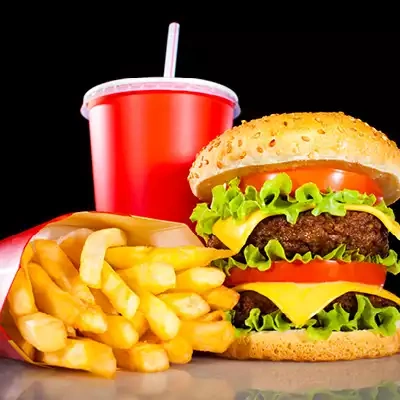Your cart is currently empty!

Understanding Emotional Eating
•
How to Build a Healthier Relationship with Food
Introduction:
Do you find yourself reaching for snacks when you’re stressed, sad, or even bored? If so, you may be experiencing emotional eating. Instead of eating to fuel the body, many people turn to food for comfort or as a coping mechanism. As a result, this habit can lead to overeating, guilt, and an unhealthy cycle of emotional dependence on food.
Understanding emotional eating is the first step toward building a healthier relationship with food. In this guide, we’ll explore what emotional eating is, why it happens, and how you can regain control to develop healthier eating habits.
1. What is Emotional Eating?
Emotional eating happens when you use food to cope with emotions rather than hunger. This often occurs due to:
- Stress and Anxiety: Food can provide temporary comfort during high-stress situations.
- Sadness or Loneliness: Eating may act as an emotional distraction.
- Boredom: People often snack when they feel unengaged or restless.
- Habitual Patterns: Some associate food with reward, such as celebrating with sweets.
However, eating in response to emotions rather than hunger can lead to overeating and poor food choices.
2. Emotional Hunger vs. Physical Hunger
Recognizing the difference between emotional hunger and physical hunger is key to overcoming emotional eating.
Signs of Emotional Hunger:
- Comes on suddenly and intensely
- Craves specific comfort foods (like sweets or junk food)
- Continues even after feeling full
- Leads to guilt or regret after eating
Signs of Physical Hunger:
- Develops gradually
- Open to various types of food
- Stops when full
- No guilt after eating
If you notice that you’re eating based on emotions, it’s time to shift towards mindful eating habits.
3. How to Build a Healthier Relationship with Food
Practice Mindful Eating
- Eat without distractions: Avoid watching TV or scrolling on your phone while eating.
- Slow down and savor each bite: This helps your brain recognize when you’re full.
- Listen to your body’s signals: Eat only when hungry and stop when satisfied.
Identify Your Triggers
- Keep a food journal: Track what and when you eat, as well as how you feel.
- Recognize emotional patterns: Notice if you eat when feeling stressed, lonely, or bored.
- Find alternative coping strategies: Replace emotional eating with healthier activities.
Develop Healthy Coping Mechanisms
- Manage stress effectively: Try deep breathing, meditation, or physical activity.
- Engage in fulfilling activities: Reading, hobbies, or socializing can help reduce emotional hunger.
- Get enough sleep: Fatigue often leads to cravings for unhealthy foods.
Stock Up on Nutritious Foods
- Keep healthy snacks available: Choose nuts, fruits, or yogurt instead of processed snacks.
- Plan balanced meals: Ensure a mix of protein, fiber, and healthy fats to stay satisfied.
- Stay hydrated: Sometimes, thirst is mistaken for hunger.
4. Breaking the Cycle of Emotional Eating
If you struggle with emotional eating, the following steps can help:
- Pause before eating: Ask yourself, Am I really hungry?
- Identify emotional triggers: Recognize patterns and replace them with positive actions.
- Seek professional support if needed: A therapist or nutritionist can provide guidance.
Most importantly, be patient with yourself. Breaking the cycle takes time, but small changes can lead to long-term success.
Final Thoughts: Embrace a Healthier Relationship with Food
Understanding emotional eating is essential to building a healthier relationship with food. By practicing mindful eating, recognizing emotional triggers, and developing healthier habits, you can regain control over your eating patterns.
Remember, food should nourish your body, not serve as an emotional escape. With awareness and the right strategies, you can create a balanced and healthier approach to eating.
https://www.healthline.com/nutrition/fixing-a-bad-relationship-with-food

 Struggling with emotional eating? Start implementing these strategies today for a healthier, balanced relationship with food!
Struggling with emotional eating? Start implementing these strategies today for a healthier, balanced relationship with food!

Disclosure: This post contains affiliate links. As an Amazon Associate, I earn from qualifying purchases. Read my full disclaimer HERE
